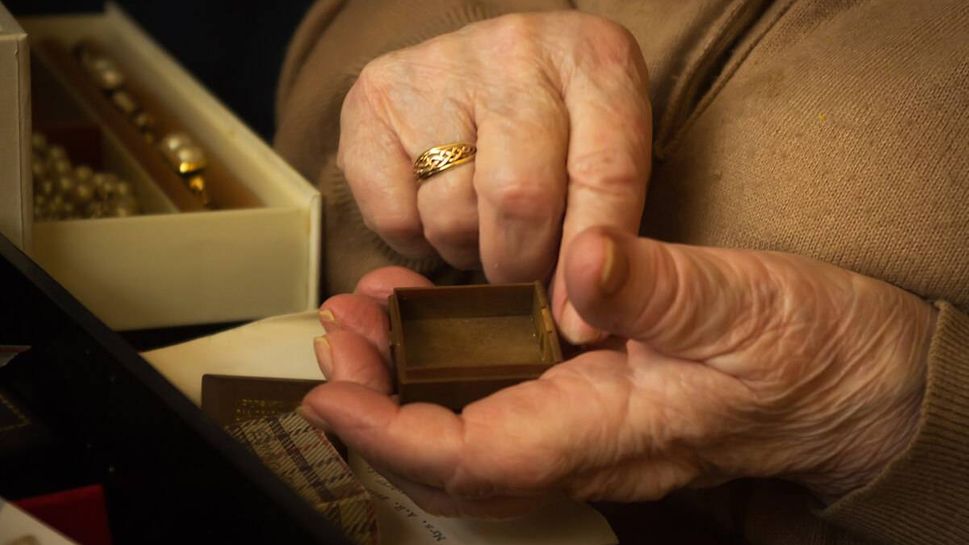7 Questions to Ask Your Spouse Right Now
Don't put off these important conversations any longer
1 of 8

Long-term couples often wait too long to talk about crucial relationship, money and retirement issues. Don't put off these conversations any longer. Click through these slides to see if you are guilty of holding off on these important conversations.
(This article appeared previously on Grandparents.com)

1. How do you want to spend time when we’re retired?
"People devote a lot of time and energy into financial planning, but very little into psychological planning for retirement," says Sara Yogev, psychologist and author of A Couple's Guide to Happy Retirement. Discussing the specifics of your downtime is crucial, she says, because it alleviates depression and shortens or prevents the disenchantment stage of retirement: "We know from research that at least one-third of retirees are depressed in the first two years of retirement, and there is an increase in marital conflicts and lower marital satisfaction of both spouses."
Much of this strife results from a lack of alignment between spouses — about retirement itself ("My god, what do I want to do with the rest of my life? I didn't expect to feel so lost and unfulfilled."), and your relationship.
"Retirement changes many elements in the relationship," says Yogev. "[Spouses] have to discuss what they want to see happening, what they want to do — the two of them together, as well as individually. Time together and apart, division of housework, money and other issues mentioned in the book must be negotiated." Starting the conversation early is ideal, but having it at all is vital.

2. What do we do if the kids ask for money?
A Grandparents.com survey showed that nearly 60 percent of grandparents have lent their kids money in the past year. And a Fidelity Investments study found that more than half of grandparents are loaning or are planning to loan their grandchildren money for college.
"It’s tough, because we have a maternal/paternal instinct that doesn’t die, even when the kids become adults themselves," says Eleanor Blayney, Consumer Advocate for the Certified Financial Planner Board of Standards. "But there’s also the reality. When kids ask for money, I think it’s imperative for the parents, the couple, to think long and hard if this is going to be a loan or a gift. If it is a loan, and you need that money back for your own retirement needs, you have to put it in writing, with terms — interest rates, maturity, payment schedule. Don’t make it open-ended. If your instinct is to make it open-ended, assume it’s a gift."
Yogev agrees, and encourages spouses to discuss the matter alone before going back to kids and grandkids. "The expectation on both sides needs to be addressed, but first of all, the two grandparents need to talk about it themselves and talk about their concerns — what they expect and what they will tolerate, and what they will not tolerate," she says.

3. Where are our valuables and important documents?
This particular question is frequently ignored because it raises the specters of illness and death, which many find difficult to contemplate, never mind discuss with a spouse. However, for practical reasons and in case of emergency, it’s vital that both partners know exactly what key documents say (living wills, etc.), and where important items are located (jewelry, heirlooms, etc.). What’s more, once the subject is broached, it’s imperative to write it all down.
"You want to get everything in writing, and make sure that periodically, you’re going back to review it," says Blayney. She suggests, "once a year, both spouses sit down, have a glass of wine, and update everything."
What should be included in your talk? "In addition to the valuable documents and property, make sure you also include on that list the professionals in your life: CPAs, doctors, etc." Also crucial is electronic access: "It’s become more complicated lately because of the digital assets. Make sure you’re keeping a list of the accounts, the passwords," she advises.

4. Is there anything new you want to try?
According to a Winston-Salem State University study, people who try a variety of new activities and experiences are more likely to "retain positive emotions" and reduce negative ones. It has positive effects for couples in retirement, as well. "As long as we're thinking or trying new activities," says Yogev, "It slows the aging process, whether you try activities that are left brain (sudoku, etc.) or right brain (ceramic, drawing, etc.)."
She also finds new undertakings to be spiritually fulfilling: "I believe it's very important to engage as we age, to find things we are interested in, that give us purpose — something we're excited about, that gets us up in the morning, that we look forward to." Yogev advises spouses to find new activities together and apart: "I really encourage people to do activities alone, as well as together, so you have something to share with other."

5. Do you want to live close to family?
We all know couples who live down the block from their loved ones, just as we know couples who live thousands of miles away. If you're considering relocating or downsizing, which option is the right one for you and your spouse, and what should you consider when discussing the matter?
Financial support, social opportunities and in many cases, care-taking — whether it’s children helping parents or grandparents babysitting grandchildren — are all big advantages to living close to family. "But you have to recognize that each generation has their own financial and personal issues to deal with," says Blayney. Before you make any move, talk about how "it’s working on a financial level as well as an emotional level," and be sure you bring it up with your family, who may or may not welcome the neighborhood company.

6. Should we update our will? And who should we talk to about it?
If you haven’t yet created a will, you should probably get on it immediately. And if you do have one, but your family situation has changed, you should move to change it, especially if your situation is a bit different from the norm — a second marriage, a disabled child, etc. "In a second marriage, it’s especially needed because you often do not have children in common," says Blayney. You should figure out, "how your children would not be disinherited should you predecease your second spouse, and they’ve left everything to their own children."
As far as who to contact, Blayney suggests visiting a Certified Financial Planner first, and an attorney second. "Talking to a planner, you can get a lot of education. We do the upfront work, and then the attorney makes sure it’s a good, solid legal document."

7. If you pass away suddenly, what do you want for me?
Personal wishes for a spouse are delicate matters, and can encompass everything from the potential for remarriage to family relationships to educational aspirations. When the issue rears its head, let the conversation be guided by two things: your current circumstances, and your partner’s perspective on death.
Of course, bringing it up in the first place is the hard part. So how do you broach the subject? "I think it's completely different when we're in our 50s and our 60s when we have a discussion about it, and everybody's healthy. It's a different issue when someone is sick, and he or she knows the other person is leaving," says Yogev. "I think we need to be very respectful, because there are people whose coping mechanism is to deny until they absolutely have to [confront death]. Other people prepare."
Ultimately, there’s no right or wrong way to discuss your wishes, but, "[p]eople have to be considerate about the other person's style … Not imposing your preference on the other person goes a long way," says Yogev.
Grandparents.com is a lifestyle website, social media community & peer group that unites & connects America's 70 million Grandparents to the best information and premier products & services just for them. Our goal is to promote well-being and give timely information on what really matters to you, from health and money to family and relationships to travel and retirement.

